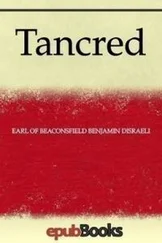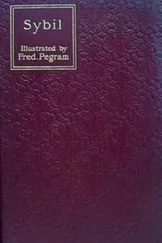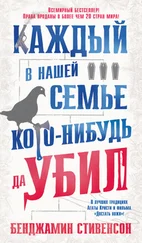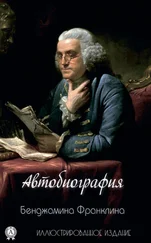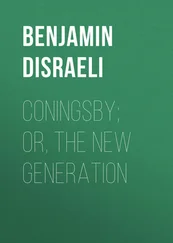Бенджамин Дизраэли - Coningsby
Здесь есть возможность читать онлайн «Бенджамин Дизраэли - Coningsby» весь текст электронной книги совершенно бесплатно (целиком полную версию без сокращений). В некоторых случаях можно слушать аудио, скачать через торрент в формате fb2 и присутствует краткое содержание. Год выпуска: 2014, Издательство: epubBooks Classics, Жанр: Классическая проза, на английском языке. Описание произведения, (предисловие) а так же отзывы посетителей доступны на портале библиотеки ЛибКат.
- Название:Coningsby
- Автор:
- Издательство:epubBooks Classics
- Жанр:
- Год:2014
- ISBN:нет данных
- Рейтинг книги:4 / 5. Голосов: 1
-
Избранное:Добавить в избранное
- Отзывы:
-
Ваша оценка:
- 80
- 1
- 2
- 3
- 4
- 5
Coningsby: краткое содержание, описание и аннотация
Предлагаем к чтению аннотацию, описание, краткое содержание или предисловие (зависит от того, что написал сам автор книги «Coningsby»). Если вы не нашли необходимую информацию о книге — напишите в комментариях, мы постараемся отыскать её.
Coningsby — читать онлайн бесплатно полную книгу (весь текст) целиком
Ниже представлен текст книги, разбитый по страницам. Система сохранения места последней прочитанной страницы, позволяет с удобством читать онлайн бесплатно книгу «Coningsby», без необходимости каждый раз заново искать на чём Вы остановились. Поставьте закладку, и сможете в любой момент перейти на страницу, на которой закончили чтение.
Интервал:
Закладка:
'We shall see, we shall see. All we have to do is to get into Parliament, work well together, and keep other men down.'
'We will do our best,' said Taper. 'A dissolution you hold inevitable?'
'How are you and I to get into Parliament if there be not one? We must make it inevitable. I tell you what, Taper, the lists must prove a dissolution inevitable. You understand me? If the present Parliament goes on, where shall we be? We shall have new men cropping up every session.'
'True, terribly true,' said Mr. Taper. 'That we should ever live to see a Tory government again! We have reason to be very thankful.'
'Hush!' said Mr. Tadpole. 'The time has gone by for Tory governments; what the country requires is a sound Conservative government.'
'A sound Conservative government,' said Taper, musingly. 'I understand: Tory men and Whig measures.'
Chapter VII.
Amid the contentions of party, the fierce struggles of ambition, and the intricacies of political intrigue, let us not forget our Eton friends. During the period which elapsed from the failure of the Duke of Wellington to form a government in 1832, to the failure of Sir Robert Peel to carry on a government in 1835, the boys had entered, and advanced in youth. The ties of friendship which then united several of them had only been confirmed by continued companionship. Coningsby and Henry Sydney, and Buckhurst and Vere, were still bound together by entire sympathy, and by the affection of which sympathy is the only sure spring. But their intimacies had been increased by another familiar friend. There had risen up between Coningsby and Millbank mutual sentiments of deep, and even ardent, regard. Acquaintance had developed the superior qualities of Millbank. His thoughtful and inquiring mind, his inflexible integrity, his stern independence, and yet the engaging union of extreme tenderness of heart with all this strength of character, had won the goodwill, and often excited the admiration, of Coningsby. Our hero, too, was gratified by the affectionate deference that was often shown to him by one who condescended to no other individual; he was proud of having saved the life of a member of their community whom masters and boys alike considered; and he ended by loving the being on whom he had conferred a great obligation.
The friends of Coningsby, the sweet–tempered and intelligent Henry Sydney, the fiery and generous Buckhurst, and the calm and sagacious Vere, had ever been favourably inclined to Millbank, and had they not been, the example of Coningsby would soon have influenced them. He had obtained over his intimates the ascendant power, which is the destiny of genius. Nor was this submission of such spirits to be held cheap. Although they were willing to take the colour of their minds from him, they were in intellect and attainments, in personal accomplishments and general character, the leaders of the school; an authority not to be won from five hundred high–spirited boys without the possession of great virtues and great talents.
As for the dominion of Coningsby himself, it was not limited to the immediate circle of his friends. He had become the hero of Eton; the being of whose existence everybody was proud, and in whose career every boy took an interest. They talked of him, they quoted him, they imitated him. Fame and power are the objects of all men. Even their partial fruition is gained by very few; and that too at the expense of social pleasure, health, conscience, life. Yet what power of manhood in passionate intenseness, appealing at the same time to the subject and the votary, can rival that which is exercised by the idolised chieftain of a great public school? What fame of after days equals the rapture of celebrity that thrills the youthful poet, as in tones of rare emotion he recites his triumphant verses amid the devoted plaudits of the flower of England? That's fame, that's power; real, unquestioned, undoubted, catholic. Alas! the schoolboy, when he becomes a man, finds that power, even fame, like everything else, is an affair of party.
Coningsby liked very much to talk politics with Millbank. He heard things from Millbank which were new to him. Himself, as he supposed, a high Tory, which he was according to the revelation of the Rigbys, he was also sufficiently familiar with the hereditary tenets of his Whig friend, Lord Vere. Politics had as yet appeared to him a struggle whether the country was to be governed by Whig nobles or Tory nobles; and he thought it very unfortunate that he should probably have to enter life with his friends out of power, and his family boroughs destroyed. But in conversing with Millbank, he heard for the first time of influential classes in the country who were not noble, and were yet determined to acquire power. And although Millbank's views, which were of course merely caught up from his father, without the intervention of his own intelligence, were doubtless crude enough, and were often very acutely canvassed and satisfactorily demolished by the clever prejudices of another school, which Coningsby had at command, still they were, unconsciously to the recipient, materials for thought, and insensibly provoked in his mind a spirit of inquiry into political questions, for which he had a predisposition.
It may be said, indeed, that generally among the upper boys there might be observed at this time, at Eton, a reigning inclination for political discussion. The school truly had at all times been proud of its statesmen and its parliamentary heroes, but this was merely a superficial feeling in comparison with the sentiment which now first became prevalent. The great public questions that were the consequence of the Reform of the House of Commons, had also agitated their young hearts. And especially the controversies that were now rife respecting the nature and character of ecclesiastical establishments, wonderfully addressed themselves to their excited intelligence. They read their newspapers with a keen relish, canvassed debates, and criticised speeches; and although in their debating society, which had been instituted more than a quarter of a century, discussion on topics of the day was prohibited, still by fixing on periods of our history when affairs were analogous to the present, many a youthful orator contrived very effectively to reply to Lord John, or to refute the fallacies of his rival.
As the political opinions predominant in the school were what in ordinary parlance are styled Tory, and indeed were far better entitled to that glorious epithet than the flimsy shifts which their fathers were professing in Parliament and the country; the formation and the fall of Sir Robert Peel's government had been watched by Etonians with great interest, and even excitement. The memorable efforts which the Minister himself made, supported only by the silent votes of his numerous adherents, and contending alone against the multiplied assaults of his able and determined foes, with a spirit equal to the great occasion, and with resources of parliamentary contest which seemed to increase with every exigency; these great and unsupported struggles alone were calculated to gain the sympathy of youthful and generous spirits. The assault on the revenues of the Church; the subsequent crusade against the House of Lords; the display of intellect and courage exhibited by Lord Lyndhurst in that assembly, when all seemed cowed and faint–hearted; all these were incidents or personal traits apt to stir the passions, and create in breasts not yet schooled to repress emotion, a sentiment even of enthusiasm. It is the personal that interests mankind, that fires their imagination, and wins their hearts. A cause is a great abstraction, and fit only for students; embodied in a party, it stirs men to action; but place at the head of that party a leader who can inspire enthusiasm, lie commands the world. Divine faculty! Rare and incomparable privilege! A parliamentary leader who possesses it, doubles his majority; and he who has it not, may shroud himself in artificial reserve, and study with undignified arrogance an awkward haughtiness, but he will nevertheless be as far from controlling the spirit as from captivating the hearts of his sullen followers.
Читать дальшеИнтервал:
Закладка:
Похожие книги на «Coningsby»
Представляем Вашему вниманию похожие книги на «Coningsby» списком для выбора. Мы отобрали схожую по названию и смыслу литературу в надежде предоставить читателям больше вариантов отыскать новые, интересные, ещё непрочитанные произведения.
Обсуждение, отзывы о книге «Coningsby» и просто собственные мнения читателей. Оставьте ваши комментарии, напишите, что Вы думаете о произведении, его смысле или главных героях. Укажите что конкретно понравилось, а что нет, и почему Вы так считаете.
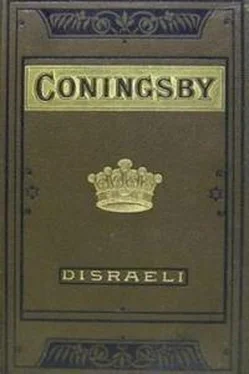
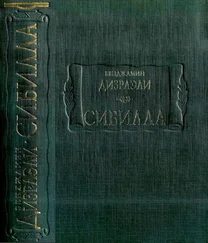
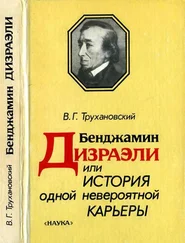
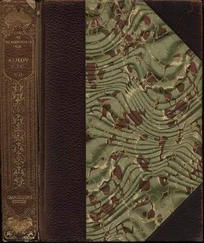

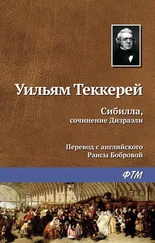
![Мелани Бенджамин - Госпожа отеля «Ритц» [litres]](/books/384861/melani-bendzhamin-gospozha-otelya-ritc-litres-thumb.webp)

